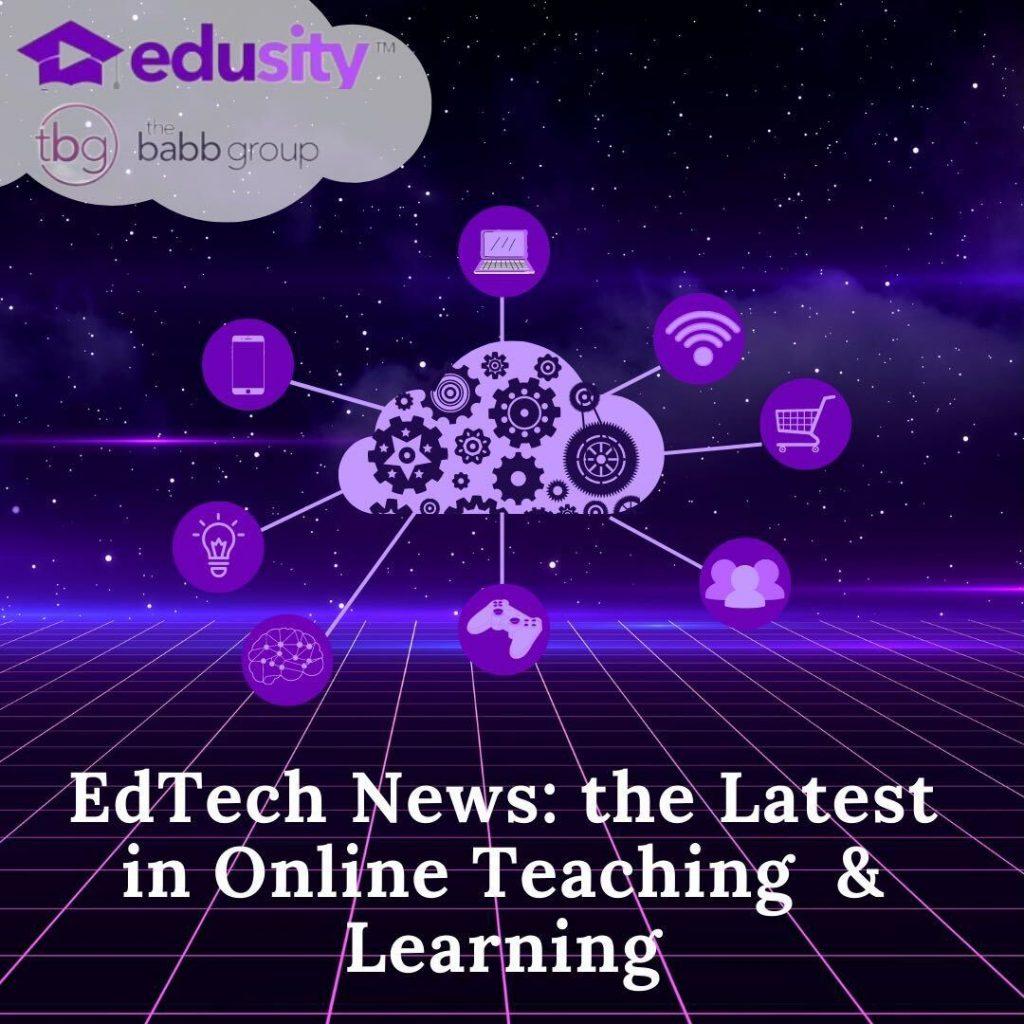This week saw the release of the seventh installment of the Changing Landscape of Online Education (CHLOE) report, produced by Quality Matters and Eduventures. The report offers an overview of the current state of online learning in higher education and contributes insights into its future development. The basis of the report is a survey of chief online officers (COOs) at two- and four-year colleges and universities.
- Highlights from the report may not be surprising for those engaged in the field. Still, the statistics should provide valuable proof for advocating for more significant investment in online programs within organizations:
- More than 99% of survey participants expressed confidence that by 2025 the typical student experience at their institutions will involve at least some online learning elements.
- The new centrality of online learning will require a corresponding increase in organizational support, and more than half of respondents say this will entail a restructuring of institutional priorities.
- While 96% of institutions have adopted quality assurance standards for online courses and programs, there is a gap between adopting and evaluating whether those standards have been met.
- As online education increases, online student-facing resources will also need to scale up to serve a new cohort of virtual learners. Mental health services have had the highest growth rate in the past year.
Press release: https://qualitymatters.org/qa-resources/resource-center/articles-resources/CHLOE-7-report-2022
As EdTech usability improves, everyone can enter the education market, deliver training, and offer certifications. This week, the Government of Canada announced that it invested $336,858 to support GS1 Canada, a not-for-profit association, in developing training for small and micro food enterprises. GS1 Canada is best known for issuing bar codes. The project includes learning modules and a virtual portal of resources specifically for the smallest agricultural and food production businesses.
The Minister of Agriculture and Agri-Food, the Honourable Marie-Claude Bibeau, announced the investment.
“This new certification program will help small and micro businesses in the food sector meet key industry and regulatory requirements and learn essential information about trade and export,” Bibeau said. “This will help these businesses to access new opportunities and strengthen our economy.”
61 million adults in the United States, roughly one in four—self-identify as living with a disability, the CDC says. Even though there is more demand for adaptive technologies to meet the needs of disabled people, many college and university programs that educate future computer scientists, software engineers, and product developers do not consistently teach students how to ensure the technology and tools they create are accessible.
To address the issue, Teach Access, a nonprofit working with education, industry, and disability advocacy organizations, has launched the Open Education Resources (OER) initiative. The initiative is intended to expand awareness of digital accessibility in higher education as students learn to design, develop and build new technologies and tools. The Teach Access Curriculum Repository brings together over 250 teaching resources to support teaching accessibility across a wide range of computer science, technology, and design programs.
“At a time when technology touches nearly every facet of our daily life and experiences, digital accessibility and inclusion are an education, civil rights, and an economic imperative,” said Kate Sonka, Executive Director of Teach Access. “This is about not just teaching students about the importance of accessibility—but equipping those future graduates to put the principles of accessibility and inclusion into practice as they look for internships and jobs.”
Press release: https://www.prnewswire.com/news-releases/new-initiative-expands-awareness-of-digital-accessibility-in-college-programs-301656560.html
Inside Higher Ed also released its annual Student Voice report this week. There is little doubt that higher ed is undergoing a profound digital transformation. The question is, how do students feel about it? Here are some highlights:
- The IHE report asked current students about who is struggling the most in class. The survey found that nearly one in four students do not believe their colleges make an effort to understand their current experiences and challenges.
- Students at public colleges are less likely to visit professors during office hours than students at private institutions. Just 13 percent of students estimate using office hours five or more times a semester.
- In answering the question, what do students want from their professors? More than half of respondents want introductions to people working in fields of interest and or advice on choosing a career direction.
Press release: https://www.insidehighered.com/content/collecting-student-perspectives-drive-supports
Latest posts by Kate Baggott (see all)
- The EdTech News for Friday, March 17, 2023: AI Supports Reading Development, Educators Detect AI-Generated School Work - March 17, 2023
- The EdTech News for Friday, March 10. 2023: Families Coding, Mindsets Changing, and Edusity is Educating - March 11, 2023
- The Hiring Manager: Human or Bot? Job Seekers Need to Know - March 9, 2023
